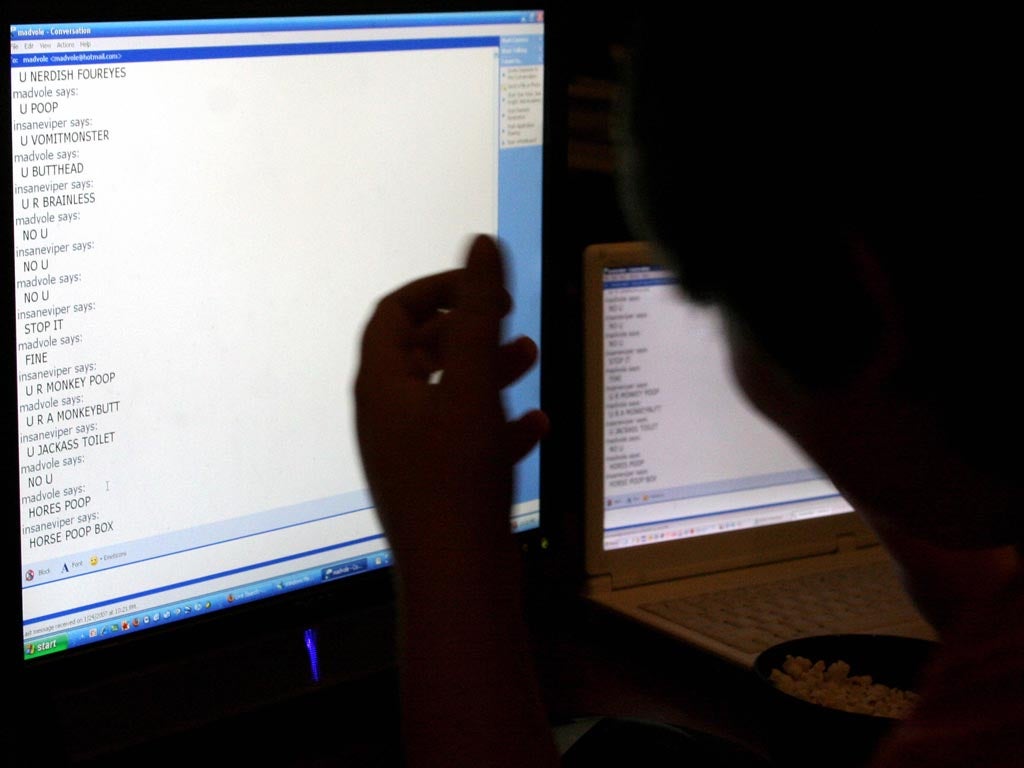We shouldn't be ashamed to admit when we're being bullied online
Cyberbullying is just as hurtful as face-to-face bullying, and it needs to be taken seriously.


Beat Bullying UK is a major charity which works with children and young people across the UK to stop bullying and define cyberbullying as “the use of information and communications technology - and the internet and mobile phones in particular - to deliberately upset someone else.”
As a disability rights campaigner who works in online media, I’ve seen quite a lot of that.
What I didn’t expect and probably should have done, is that as my profile online increased and in asking for balance, others were not quite so flexible. I’m not a celebrity, but I’ve been dissected in blogs, on forums and on Twitter many times.
Interestingly most venom is used to dissect my looks, my writing, cod diagnosis of my mental health, my time online in terms of my abilities as a mother, my participation in the breakdown of society as we know it and my fitness to even discuss any of these issues I campaign on, as I’m neither a comedian myself nor disabled.
I have 7,000 followers on Twitter and I receive abusive messages routinely. I can’t imagine how it must feel to have hundreds of thousands, indeed millions of followers and have to see this sort of “opinion” daily and depressingly transfer into mainstream media.
In my case I’m usually pursued not by an individual but by gangs. Sometimes it’s celebrity fans and sometimes by their same online haters.
The problem is it stops being ‘just their opinion’ when it goes on for several hours a day, for days at an end. It stops being ‘ just their opinion’ when the targeting is personal and abusive and sustained and orchestrated. It stops being ‘just their opinion’ when anonymous people appear and claim to be lawyers who are looking to take action for libel. It stops being ‘just their opinion’ when they claim a fake hate crime was instigated because of one of my tweets.
It stops being just their opinion and becomes bullying.
Celebrities enduring constant abuse, often give up and delete their accounts. So do many non-celebrities. It’s just that being famous apparently ‘means’ that in the eyes of some, you have no right to complain or to retaliate.
I spoke to Graham Linehan, writer and positive Twitter powerhouse for his take on celebrities being targeted in this way. He said:
“I am constantly astonished by the lack of empathy for people deemed to be ‘celebs’ that you find out there. The Tom Daley thing was the worst example. A kid, eighteen years old, is bullied in the most disgusting way possible online, and all I could see in my Twitter timeline was sympathy for the bully. An instant assumption, too, that Daley called the police about the incident, which he did not. Daley was a celeb, you see, and so people immediately assumed the worst about him, because that is how they've been conditioned to think.”
I don't think that this is naturally part of the British character. Murdoch was the plague-carrying rat that made ordinary people lose empathy with anyone who popped up into their field of vision. The example I always think of is Kerry Katona, caught snorting a line of cocaine because The News of the World hid a camera in her fucking bathroom. And because Murdoch had by now worked his magic so completely, the story was not the camera in the bathroom, but the cocaine.
The dehumanising of celebs has been absorbed into the culture so completely that when celebs respond in completely human, understandable ways to abuse, they're called out as bullies. This despite the fact that, for a celeb, a daily drip of either outright abuse, or passive aggressive pissiness, is the price they pay for attempting to engage with the public like, you know, everyone else.
Now, I have my own methods for dealing with all this stuff (the block button is Twitter's greatest invention), and I think there's things to be said for the maxim “don't feed the trolls”, but I've also seen it used in a way that amounts to victim-blaming.
It removes power from the harassed and the bullied, whether they are Almighty Inhuman Celebrities or Ordinary Folk, and doesn't address the countless workarounds a bully can find to put the knife in. If you know what it's like to receive daily abuse from strangers, then fine, I'll listen to your advice on dealing with it. But if you don't, your opinion on the matter is not something I'll be seeking out.”
As Graham Linehan mentions police intervention can be swift in response to abuse. Padraig Reidy News Editor from The Index on Censorship offers an additional perspective:
“We’re in a new world where we may not even realise the massive communication power at our disposal. One can see this in the blasé manner in which people will use offense on the web, perhaps without understanding that what they write can potentially be read by millions. But as cases such as that of Paul Chambers have shown, many of our current laws are not fit for this medium, and it’s not certain that yet more laws will really be an effective curbing of online abuse. “
“It would also be a shame to attempt to limit the potential of this technology. This is not to downplay the abuse people suffer, but hate speech can only ever really be countered with argument and education.”
Those who work to address bullying, in all its guises, are charities like Beat Bullying UK. Their Deputy Chief Executive, Richard Piggin had this advice:
“People should always save, rather than respond to - and potentially provoke further - abusive messages. And, if the cyberbullying is taking place on a social media site, they should not only block the user, but actually report them to the site or Internet Service Provider. Mobile phone companies, website owners and service providers all have a responsibility to intervene when their technology is being used as a medium for bullying or harassment.”
Cyberbullying is as damaging as any bullying. Thinking you can simply turn off the computer and walk away diminishes those targeted and enables bullies to thrive. I don’t just use social media just to campaign.
As a carer - a role in life not conducive to the “party circuit” - it’s a crucial social network for me, as well as a cathartic pressure valve.
I nearly deleted my account after this last attack but decided not to, because as my daughter, herself a veteran of bullying due to her disability said “You can’t let them win, Mum”.
We have to start recognizing and realising that our collective silence is the most powerful weapon a bully has because it enables the aggressor and isolates the target.
That’s why I speak out about bullying everyday, in all its forms, and stand up to bullies and when I see others being bullied online, because I would do exactly the same if I saw it happen in real life.
There is no shame in being bullied and in stating that you are. Irrespective of your age or status, no one is immune and it’s never justifiable.
The only shameful action, hand in hand with participating in bullying directly, is to see happening to others and then blame those being targeted.